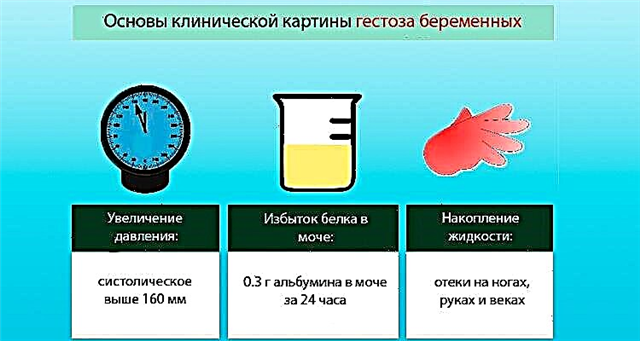Mitral valve prolapse (MVP) is a cardiac pathology in which the leaflets of the mitral valve sag (prolapse), as a result of which their incomplete closure and reverse flow of blood into the left atrium (regurgitation) occurs at the time of ventricular systole.
Physical limitations and loads with MVP
By itself, a mitral valve defect is not a contraindication to physical activity and sports. It all depends on the degree of regurgitation, the presence of signs of chronic heart failure (CHF), heart rhythm disturbances, episodes of loss of consciousness.
All people with MVP at the I degree of regurgitation are prohibited from the following physical exercises:
- boxing;
- sports in which you need to perform jerky movements - throwing a javelin or a disk, putting the shot, wrestling, jumping;
- lifting weights.
Sports and physical exercises that are allowed for MVP with I degree of regurgitation:
- Athletics;
- sports swimming;
- exercises in the gym - it is recommended to lift weights that do not exceed your own body weight. Preference should be given to aerobic exercise (cardio);
- dance training - only those types of dance are allowed that do not involve lifting a partner;
Sports allowed for II degree regurgitation:
- table tennis;
- figure skating (without lifting a partner and sharp jumps);
- swimming (amateur);
- gymnastics;
- a ride on the bicycle.
Any kind of sport and physical activity (except for physiotherapy exercises) is strictly prohibited in the following situations:
- mitral regurgitation of the III degree;
- pain in the region of the heart;
- there are serious cardiac arrhythmias: prolonged QT interval, paroxysmal tachycardia, atrial fibrillation, frequent polytopic extrasystoles;
- the presence of signs of congestive heart failure - swelling in the legs, heaviness in the right hypochondrium, difficulty breathing during physical work;
- there were episodes of loss of consciousness (fainting).
For patients with the above symptoms, intense physical activity can dramatically worsen the state of health, cause dangerous complications that can end very badly without urgent medical intervention.
As for physiotherapy exercises (exercise therapy), it will be useful for patients with any degree of mitral regurgitation. These exercises are based on increasing endurance and aerobic reserves of both the whole body and the heart.
Examples of exercises:
- high lifts of bent legs;
- circular movements of the hands forward and backward;
- circular movements of the hips;
- body turns;
- walking or running slowly.
General recommendations for exercise therapy classes:
- Observe a moderate pace of movement.
- Breathing should be smooth.
- The duration of one workout should not exceed 30 minutes.
- The total training time per week is about 150 minutes.
- Heart rate should be monitored during exercise. It shouldn't be too high. Calculating the limit that cannot be exceeded is quite simple - you need to subtract your age from 200. If the heart rate is higher than this value, it is worth taking a short break (1-2 minutes) and continuing at a calmer pace.
Criteria for suitability for service of a young man with MVP
At first glance, it may seem that mitral valve prolapse and the army are incompatible things. Indeed, this is, in fact, a heart defect. How can you take a young man into the army with such a disease? However, not everything is so simple.
By the mere presence of mitral valve prolapse in a person, it is impossible to determine whether it is worth admitting him to urgent service or not.
I often hear the question: do they take into the army with mitral valve prolapse of the 1st degree? According to the legislation of the Russian Federation, there are the following criteria for the suitability of people with PMK for service:
- mitral valve prolapse I degree with regurgitation I degree;
- the conscript lacks signs of chronic heart failure, serious heart rhythm disturbances;
- absence of cases of sudden cardiac death associated with prolapse in close relatives.
Such conscripts are assigned category "A" - fit for military service. They can even serve on a contract basis.
In the presence of MVP with regurgitation of the II degree, the conscript is assigned category "B" - suitable with minor restrictions. The young man is sent to such a branch of the army, the passage of service in which does not provide for the performance of heavy physical activity - the defense of missile combat systems, radio engineering units, etc.
If a person has MVP with regurgitation of the II degree and I functional class of heart failure (this is when the symptoms of CHF appear only with very intense and prolonged physical work), he is assigned the category "D" - temporarily unfit for military service. The conscript is given a deferment and referral to cardiological treatment, after which (after 6-12 months) he again undergoes a military medical commission.
In the case of prolapse with II degree regurgitation, signs of severe CHF (II-IV functional class), dangerous heart rhythm disturbances, category "B" is established - limited fit for military service. This means that the young man cannot be called up in peacetime.
What documents to collect and what examinations to do
List of documents:
- The passport.
- Medical insurance policy.
- SNILS.
- Registration certificate.
- Outpatient card from the clinic with doctors' records of the presence of mitral valve prolapse.
- Research protocols (electrocardiography, echocardiography) with conclusions confirming the presence of MVP, severe rhythm disturbances or heart failure.
It is very important to bring documents, certificates and medical records confirming the presence of mitral valve prolapse.
Procedure for passing the commission
The Military Medical Commission includes 2 stages:
- Medical clearance.
- Final commission.
At a medical examination, a conscript directly at the military registration and enlistment office undergoes a minimum laboratory and instrumental examination:
- general blood analysis;
- general urine analysis;
- fluorography;
- electrocardiography;
- blood test for HIV, hepatitis B and C.
He is also examined by the following medical specialists:
- ophthalmologist (ophthalmologist);
- otorhinolaryngologist (ENT);
- psychiatrist;
- dentist;
- surgeon;
- neurologist;
- dermatovenerologist;
- therapist.
The therapist is the last in the line of doctors of the commission. He collects all the records received from other specialists, if necessary, assigns an additional examination, and, focusing on the state of health of the conscript, preliminary determines his suitability for military service.
If a young man knows that he has a mitral valve prolapse, it is the therapist who needs to be informed about this, submit the confirming medical records of the cardiologist or therapist in his outpatient card, as well as the conclusion of echocardiography (ultrasound of the heart).
When examining a recruit, the therapist listens to the heart with a stethoscope to detect auscultatory signs of prolapse (systolic click and noise), checks the rhythm of the pulse, examines the legs for edema; asks whether there have been episodes of loss of consciousness, whether there are cases of death of close relatives associated with MVP, examines the cardiogram to detect cardiac arrhythmias.
Further, the therapist issues a referral for echocardiography, Holter (daily) ECG monitoring, if the last study was more than 6 months ago. Stress echocardiography is preferred, i.e. ECG during physical activity.This will allow you to clearly determine the severity of the disease. The following indicators of ultrasound of the heart are of interest:
- the degree of prolapse (sagging) of the valves;
- the degree of blood regurgitation;
- left ventricular ejection fraction is an indicator that characterizes the ability of the heart muscle to pump blood.
After that, the conscript with all the records, research results, the diagnosis of the therapist to determine fitness for service is sent to the final commission, consisting of the chairman and his deputies. Officials carefully study all medical certificates and opinions, conduct a conversation with the conscript. At the end of the meeting, the young man is given the degree of fitness for military service.



